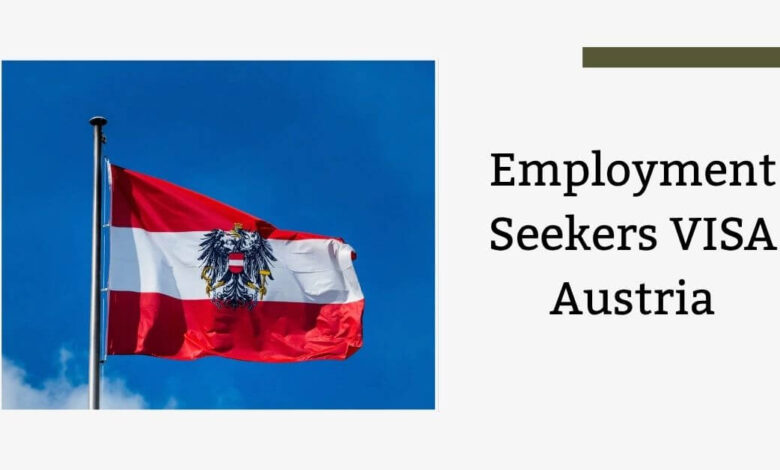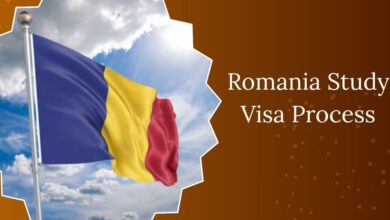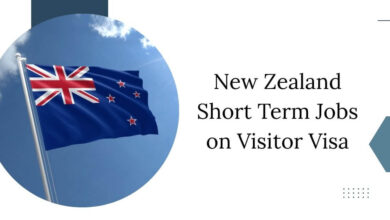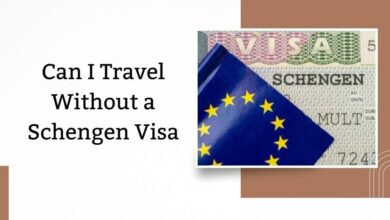Employment Seekers VISA Austria 2026 – Eligibility Check

If you hold a bachelor’s, master’s, or professional degree in engineering, medicine, law, business, management, or other in-demand fields, the Austrian Job Seeker Visa allows you to enter Austria and look for work legally for up to six months.
This visa is designed for non-EU citizens who want to explore Austria’s job market, particularly in sectors where skilled workers are in high demand. If you secure a job, you can then apply for the Red-White-Red Card, Austria’s work visa that permits residence and employment across the country and can serve as a gateway to Europe.
Who Needs an Austrian Job Seeker Visa?
Ask yourself these two questions:
- Are you from an EU country?
- Do you already have a job offer from an Austrian company?
- If the answer to both is “No”, you need to apply for the Austrian Job Seeker Visa.
- EU citizens are exempt, as they can enter Austria for up to 90 days to search for work.
How Long Can You Stay in Austria on a Job Seeker Visa?
The Austrian Job Seeker Visa allows you to stay in Austria for six months, giving you enough time to explore employment opportunities, attend interviews, and secure a position. Once employed, you can transition to a Red-White-Red Card, which is valid for two years and enables long-term work and residency in Austria.
Is It Easy to Get a Job Seeker Visa for Austria?
Yes. Austria uses a point-based system to evaluate eligibility. Points are awarded for:
- Age
- Education level
- Work experience
- Language skills
Applicants typically need 65–70 points to qualify. This system makes it straightforward for skilled professionals to determine eligibility before applying.
How to Apply for an Austrian Job Seeker Visa
- Self-Evaluation
- Use Austria’s point system to calculate your eligibility.
- Submit Application to Austrian Embassy
- Provide supporting documents, including:
- Letter of intent to work in Austria
- Qualification certificates (degrees, diplomas)
- Health certificate
- Police clearance/character certificate
- Valid passport (minimum 6 months remaining)
- Provide supporting documents, including:
- Pay the Application Fee
- The Austrian embassy charges €120 to process the application.
Tip: Organize all documents carefully to avoid delays and ensure smooth processing.
Austrian Job Seeker Visa vs Red-White-Red Card
| Feature | Job Seeker Visa | Red-White-Red Card |
|---|---|---|
| Purpose | Enter Austria to search for employment | Live and work legally in Austria |
| Duration | 6 months | 2 years (renewable) |
| Work Permission | Not allowed until you secure a job | Full work authorization |
| Eligibility | Skilled professionals without a job offer | Skilled workers with an employment offer |
Key Benefits of the Austrian Job Seeker Visa
- Allows entry into Austria to search for work legally.
- Provides a pathway to long-term employment via the Red-White-Red Card.
- Easy point-based eligibility assessment.
- Supports professionals in high-demand sectors like engineering, healthcare, law, and business.
- Simplifies relocation to Europe for non-EU skilled workers.
Who Can Apply?
- Professionals from non-EU countries.
- Degree holders in fields with high demand in Austria, such as:
- Engineering
- Medicine & healthcare
- Law
- IT & technology
- Business & management
- Candidates who do not yet have a job offer in Austria.
Conclusion:
The Austrian Job Seeker Visa is a smart way for workers from outside the EU to look for work in Austria. This visa makes it easier to get a job in Austria and helps people eventually move on to long-term work visas like the Red-White-Red Card. The application process is simple, and the rewards are clear. EU citizens can enter and look for work more easily, which makes Austria a desirable place for skilled workers.
Frequently Asked Questions:
Is it Easy to Get an Austrian Job Seeker’s Visa?
Yes, because it is based on points, getting an Austrian Job Seeker’s Visa is pretty easy. Applicants are judged on their age, schooling, work experience, and language skills, and need between 65 and 70 points to be eligible.
How Do I Apply for an Austrian Job Seeker’s Visa?
Those who want to apply must first use the point system to evaluate themselves. They must then send their application to the Austrian embassy in their home country along with supporting papers such as a letter of intent to work, qualification certificates, health and character certificates, and a valid passport. There is a €120 fee for filing.
What is the Employment Seeker’s Visa for Austria?
It is a visa that allows qualified professionals to enter Austria and search for employment for up to six months.




